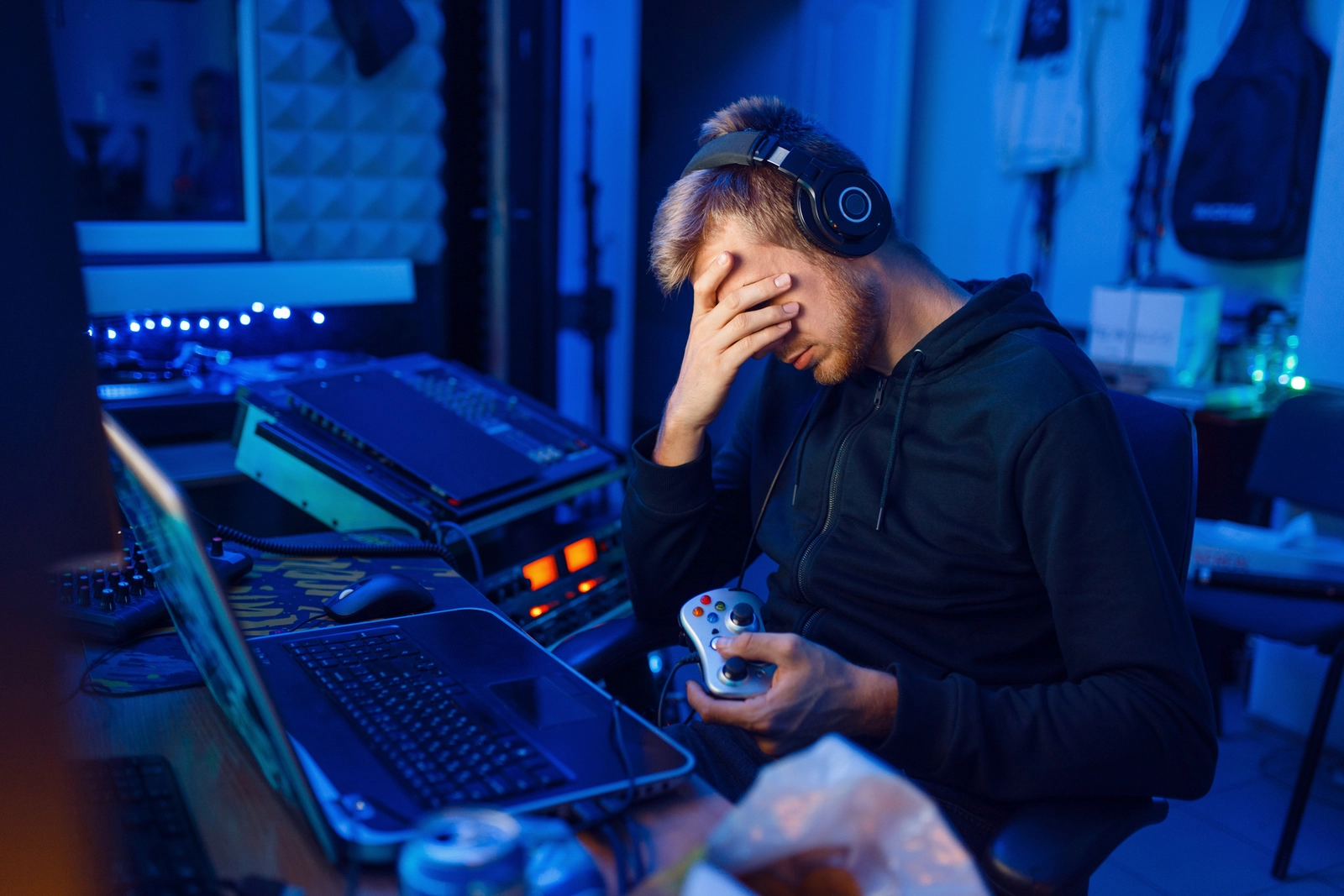Does NyQuil Make You Sleepy? Everything You Need To Know

What you will learn
- NyQuil is an over-the-counter medication used to relieve cold and flu symptoms. It combines dextromethorphan, diphenhydramine, and phenylephrine to suppress cough, drowsiness, and congestion.
- NyQuil makes you sleepy primarily because it contains diphenhydramine, an antihistamine with sedative effects. This drug helps alleviate cold symptoms and promote rest.
- NyQuil can be abused, particularly for its dextromethorphan content, which may induce euphoria or hallucinations if taken in large doses or mixed with other substances.
- An overdose of NyQuil can occur if taken in excessive amounts or combined with other drugs or alcohol, leading to severe symptoms such as drowsiness, confusion, breathing difficulty, and potentially requiring emergency medical intervention.
NyQuil is a popular over-the-counter medication used to alleviate symptoms of colds and flu, such as coughing, congestion, and sore throat. One of its common side effects is drowsiness, which many people experience after taking the medication.
This sleepiness is primarily due to NyQuil’s antihistamine component, which can make you unusually tired. Understanding why NyQuil makes you sleepy and the potential risks associated with its misuse is important for this medication’s safe and effective use.
What is NyQuil?
NyQuil is an over-the-counter medication commonly used to relieve symptoms associated with colds and flu.[1] It combines several active ingredients to address multiple symptoms:
- Dextromethorphan: A cough suppressant that helps reduce the urge to cough.
- Diphenhydramine: An antihistamine that alleviates symptoms like runny nose and sneezing while also causing drowsiness, which can help sleep.
- Phenylephrine: A decongestant that relieves nasal congestion.
NyQuil relieves nighttime by addressing cough, congestion, and other cold symptoms. Its sedative properties help individuals rest more comfortably while they recover, often making users feel drowsy as a side effect.
Why Does NyQuil Make You Sleepy?
NyQuil makes you sleepy primarily due to its antihistamine component, diphenhydramine.[2] Diphenhydramine is known for its sedative effects, which can induce drowsiness by blocking histamines, chemicals in the body that promote wakefulness.
In addition to diphenhydramine, NyQuil’s other ingredients, such as dextromethorphan (a cough suppressant) and phenylephrine (a decongestant), can also contribute to a feeling of fatigue. While these components are not directly sedative, they can impact overall comfort and restfulness, further enhancing the medication’s tendency to make users feel sleepy.
This combination of ingredients is designed to help with nighttime symptoms, allowing users to rest and recover. However, the resulting drowsiness can be a significant side effect, which is important to consider when planning activities or managing daily responsibilities.
What Are the Side Effects of NyQuil Use?

NyQuil, while effective for relieving cold and flu symptoms, can cause various side effects due to its active ingredients:[3]
- Drowsiness: Diphenhydramine, an antihistamine in NyQuil, often leads to significant drowsiness. It is intended to help with sleep but can affect daily activities.
- Dizziness: Users may experience dizziness or lightheadedness, so it is important to avoid activities requiring alertness, such as driving.
- Dry mouth and throat: Antihistamines like diphenhydramine can cause dryness in the mouth and throat.
- Nausea and vomiting: Some individuals may experience gastrointestinal discomfort, including nausea and vomiting.
- Constipation: Antihistamines may lead to constipation in some users.
- Blurred vision: Vision disturbances can occur due to the effects of antihistamines.
- Confusion: High doses or prolonged use can lead to confusion, impaired coordination, and difficulty concentrating.
In rare cases, excessive use or abuse of NyQuil can result in more severe side effects, including liver damage due to acetaminophen, hallucinations from dextromethorphan, or serious allergic reactions.
Can NyQuil Be Abused?
Yes, NyQuil can be abused, primarily due to its active ingredient, dextromethorphan (DXM), which can produce euphoric or hallucinogenic effects when taken in large quantities:[4]
- Taking high doses: Abusers may consume significantly more than the recommended dosage to achieve a high, which can lead to serious health risks, including nausea, dizziness, and impaired motor function.
- Mixing NyQuil with other substances: NyQuil might be mixed with other substances to intensify its effects or to alter the high. This practice can be particularly dangerous and increase the risk of adverse reactions.
- Using it as a sleep aid: Some people might misuse NyQuil specifically to induce sleep, taking it more frequently or in larger doses than prescribed, which can lead to dependency and other health issues.
Abusing NyQuil or any medication can be harmful and lead to serious consequences, including overdose, liver damage, and long-term health complications. It is important to use NyQuil only as directed and consult a healthcare provider if you have concerns about its use or potential for abuse.
Can You Overdose on NyQuil?
Yes, it is possible to overdose on NyQuil.[5] NyQuil contains active ingredients which can be harmful in excessive amounts. An overdose can occur if you take more than the recommended dosage or combine NyQuil with other medications or alcohol, which can amplify its effects.
Symptoms of NyQuil overdose may include extreme drowsiness, confusion, difficulty breathing, rapid heartbeat, seizures, or loss of consciousness. Overdosing on NyQuil can lead to severe health complications and requires immediate medical attention. If you suspect an overdose, contact emergency services or go to the nearest emergency room right away.
What Can I Do To Get Help with NyQuil Abuse?
If you’re struggling with NyQuil abuse, it’s important to know that help is available and recovery is possible. The first step is often contacting a healthcare professional, such as your primary care physician or a substance abuse specialist. These experts can assess your situation, provide medical advice, and guide you toward appropriate treatment options. They may recommend addiction counseling, which can be invaluable in understanding the root causes of your abuse and developing effective coping strategies.
For more severe cases, a medically supervised detox program might be necessary to manage withdrawal symptoms safely. Following detox, or as a standalone option for less severe cases, consider exploring treatment centers that offer inpatient or outpatient rehab programs. These facilities provide comprehensive care and support for recovery, often incorporating individual and group therapy, education about addiction, and tools for maintaining long-term sobriety.
It’s also important to address any underlying issues that may be contributing to your substance abuse. Often, people turn to substances like NyQuil to self-medicate for mental health issues such as anxiety or depression.
Treating these underlying conditions can be important to your overall recovery plan. Additionally, making positive lifestyle changes can support your recovery efforts. This might include adopting regular exercise routines, improving nutrition, and learning stress management techniques.
Remember, recovery is a process, and seeking help is okay – so don’t hesitate to reach out. With the right support and treatment, you can overcome NyQuil’s abuse and reclaim control of your life.
Ready to get help for you or a loved one? Contact us
To ensure accuracy and quality, every contributor to the Alpas Wellness resource library undergoes a thorough evaluation of their experience, credentials, and achievements prior to publication.
Frequently Asked Questions About NyQuil Use and Abuse
How long does NyQuil stay in your system?
NyQuil typically remains in your system for several hours to a day, depending on several factors. Generally, the effects of NyQuil and symptom relief can be felt for about 4 to 6 hours, but traces of the medication may linger longer.
One of NyQuil’s active ingredients, doxylamine, has a half-life of 10 hours, and it can take up to 2 days to be completely eliminated from the body.[6] For individuals with liver conditions or those taking other medications, NyQuil might stay in the system longer and have prolonged effects.
What are the common myths about NyQuil?
Common myths about NyQuil include the belief that it is entirely safe for long-term use and that higher doses are more effective. In reality, NyQuil is intended for short-term relief of cold and flu symptoms, and prolonged use can lead to dependency and side effects. Taking more than the recommended dose does not enhance its effectiveness and can increase the risk of adverse effects, such as liver damage and severe drowsiness. It’s important to use NyQuil as directed and to be aware of its limitations and potential risks.
What are the alternatives to NyQuil for cold and flu symptoms?
Alternatives to NyQuil for managing cold and flu symptoms include over-the-counter medications like DayQuil, which offers symptom relief without causing drowsiness. Herbal remedies such as ginger, honey, and lemon can relieve symptoms. Prescription treatments might be appropriate for more severe symptoms or underlying conditions. Additionally, non-medication approaches such as staying hydrated, resting, and using a humidifier can help alleviate symptoms and support recovery.
How can you reduce the risk of NyQuil abuse?
To reduce the risk of NyQuil abuse, it is crucial to use the medication strictly as directed by the label or your healthcare provider. Avoid taking NyQuil with other substances, especially alcohol, which can enhance its sedative effects and increase the risk of misuse.
Be aware of the potential for dependency, particularly if using NyQuil frequently for non-medical reasons. If you have concerns about dependence or misuse, discuss them with a healthcare provider who can provide guidance and alternative treatment options.
[1] Vicks. (2019). Vicks.com. https://vicks.com/en-us/safety-and-faqs/faqs/vicks-nyquil-faq on August 30, 2024
[2] DailyMed – VICKS NYQUIL COLD AND FLU- acetaminophen, dextromethorphan hydrobromide, and doxylamine succinate liquid. (2024). Nih.gov. https://dailymed.nlm.nih.gov/dailymed/drugInfo.cfm?setid=fc9a6f7e-32c1-9ded-e053-6294a90a9dcc on August 30, 2024
[3] Drugs.com. (2024). NyQuil Side Effects: Common, Severe, Long Term. https://www.drugs.com/sfx/nyquil-side-effects.html on January 5, 2026
[4] Martinak, B., Bolis, R. A., Black, J. R., Fargason, R. E., & Birur, B. (2017). Dextromethorphan in Cough Syrup: The Poor Man’s Psychosis. Psychopharmacology Bulletin, 47(4), 59–63. https://www.ncbi.nlm.nih.gov/pmc/articles/PMC5601090/ on August 30, 2024
[5] Journey, J. D., Agrawal, S., & Stern, E. (2021). Dextromethorphan Toxicity. PubMed; StatPearls Publishing. https://www.ncbi.nlm.nih.gov/books/NBK538502/ on August 30, 2024
[6]How long does Nyquil last?. Drugs.com. (n.d.). https://www.drugs.com/medical-answers/long-nyquil-3566188/ on August 30, 2024